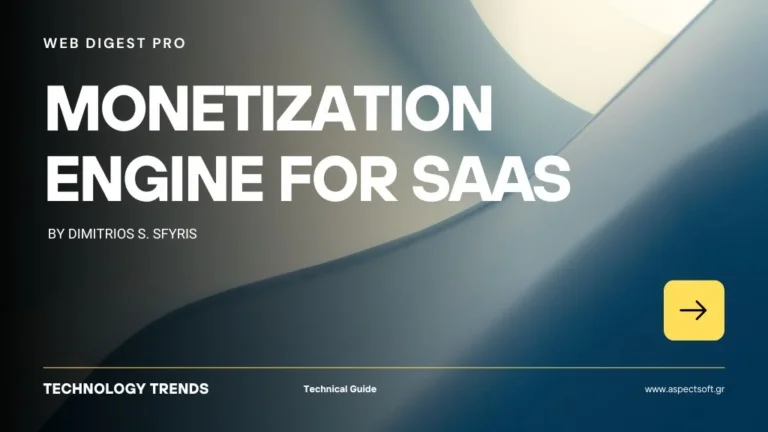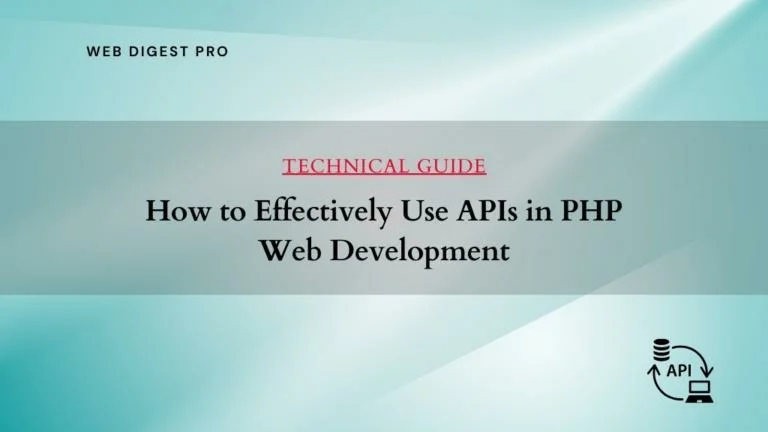It has been estimated that 78% of websites globally depend on PHP, the dominant server-side scripting language. Developers must be aware of the evolution of PHP regarding high performance and security. Best practices and tools are widely discussed in various sources. This article concentrates on some critical tools and practices to enhance your development skills.
Table of Contents
- Best Practices for Modern PHP Development
- Essential Tools for PHP Developers
- Further Reading
- Conclusion
Best Practices for Modern PHP Development
1. Strict Type Declarations
Using strict type declarations can significantly enhance code reliability and maintainability. By enforcing strict types, you reduce the risk of unexpected behavior and runtime errors. In PHP 7 and later, you can enable strict typing at the file level:
declare(strict_types=1);
function add(int $a, int $b): int {
return $a + $b;
}2. PSR Standards Compliance
To ensure interoperability with other PHP projects and libraries, it is advisable to follow the PHP Standards Recommendations (PSRs). Notably, adhere to the following:
- PSR-12: Use this guideline to ensure code consistency and readability. It extends PSR-2 with more detailed rules.
- PSR-4: A common autoloading standard for classes using namespaces.
{
"autoload": {
"psr-4": {
"App\\": "src/"
}
}
}For more PSRs visit the PHP-FIG website.
3. Dependency Injection
Consider following a practice known as Dependency Injection (DI), a loose coupling technique for enhanced testability. This means that instead of creating dependencies within classes, prefer to inject them through the constructor method. Some PHP frameworks that provide robust DI containers are Symfony and Laravel.
class UserController {
private $userService;
public function __construct(UserService $userService) {
$this->userService = $userService;
}
public function index() {
return $this->userService->getAllUsers();
}
}4. Utilize Modern PHP Features
Some interesting features of PHP 8 improve code clarity and performance:
- Just-In-Time (JIT) compilation, which enhances performance during execution, and
- Attributes, which provide a native way to add metadata to classes, methods, and properties.
#[Route('/users', methods: ['GET'])]
public function getUsers() {
// ...
}- Match Expression: Offers a concise alternative to switch statements.
$result = match($status) {
'success' => 'Operation was successful',
'error' => 'An error occurred',
default => 'Unknown status',
};5. Secure Coding Practices
Between top priorities in PHP development is program security. The practices outlines below avoid common vulnerabilities. Special care should be given to:
- Input Validation and Sanitization: SQL Injection and XSS attacks are frequent security issues. Always ensure you check and clean any user-provided data.
- Prepared Statements: Prefer PDO or MySQLi with prepared statements to avoid SQL Injection.
$stmt = $pdo->prepare('SELECT * FROM users WHERE email = :email');
$stmt->execute(['email' => $email]);- Password Guidelines: It is advisable to hash and verify passwords before saving them in the database.
Example code:
$securePassword = password_hash($userPass, PASSWORD_DEFAULT);
$isValid = password_verify($userPass, $securePassword);
if ($isValid) {
// Code runs here if the password is valid
}Essential Tools for PHP Developers
1. PHPStorm
A robust IDE tailored for PHP development. It features intelligent code completion, live error detection, automated code refactoring, and compatibility with major PHP frameworks. Its integration with version control systems makes it a favorite among developers for creating and managing PHP projects.
2. Laravel
A PHP framework known for its clean syntax and powerful capabilities. It streamlines processes like routing, authentication, and caching, making it perfect for contemporary web applications.
- Eloquent ORM: Simplifies database interactions.
- Blade Templating Engine: Enhances view management with a clean syntax.
3. PHPUnit
This essential framework maintains code quality. Developers use it extensively to write and run unit tests.
class MyTest extends MyCase {
private const CLIENT_NAME = 'Client Name';
public function testCreatingUser() {
$client = new User(self::CLIENT_NAME);
$clientName = $client->getName();
$this->assertEquals(self::CLIENT_NAME, $clientName);
}
}
4. Docker
Many developers prefer Docker to automate the deployment of applications within containers. These containers are compact and portable, designed to bundle an application along with its dependencies, ensuring uniformity across various environments. Docker simplifies the processes of development, testing, and deployment by allowing PHP applications to run in isolation, which facilitates easier management and scaling in different settings.
version: '3.8'
services:
app:
image: php:8.1-fpm
volumes:
- .:/var/www/html
ports:
- "8000:80"
db:
image: mysql:5.7
environment:
MYSQL_ROOT_PASSWORD: secret5. Xdebug
Xdebug extends PHP with powerful debugging and profiling capabilities. It helps identify bottlenecks and understand application performance.
- Stack Traces: Get detailed stack traces on errors.
- Remote Debugging: Debug your application running on a remote server.
Further Reading
- PHP: The Right Way
- Official PHP Documentation
- Composer Documentation
- Laravel Documentation
- Symfony Documentation
- PHPUnit Documentation
- Docker Documentattion
- Xdedug Documentation
Conclusion
Modern PHP development involves staying updated with best practices, leveraging the latest language features, and utilizing powerful tools. By following the PSR standards, embracing practices like dependency injection, and securing your code, you can build robust and maintainable applications. Specific development tools like PHPStorm for coding, Laravel for framework support, PHPUnit for testing, Docker for containerization, and Xdebug for debugging can greatly improve your development process.
For more on insights and tips about PHP development, check out our blog.
Written by Dimitrios S. Sfyris, developer and founder of AspectSoft, a software company specializing in innovative solutions. Follow me on LinkedIn for more insightful articles and updates on cutting-edge technologies.
Subscribe to our newsletter!













Really enjoyed reading this!